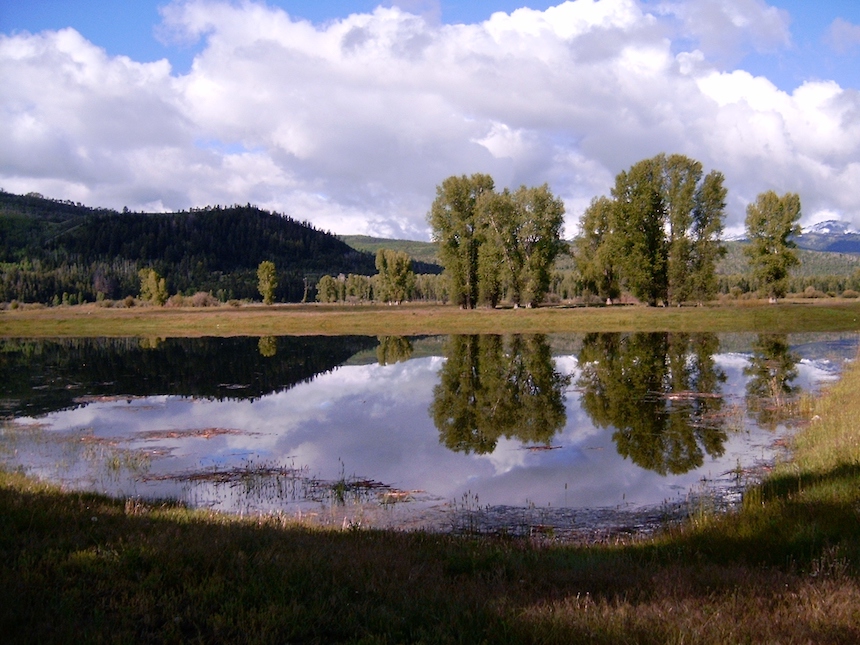 The Wyoming Game and Fish Department and the University of Wyoming have each received $112,500 in grant funding from the U.S. Environmental Protection Agency (EPA) to develop protect, manage and restore wetlands in the state of Wyoming. The EPA Wetland Program Development Grants announced today are awarded through a competitive process and are intended to support state and local efforts to increase the quantity and quality of wetlands in the U.S. by conserving and restoring wetland acreage and improving wetland condition.
The Wyoming Game and Fish Department and the University of Wyoming have each received $112,500 in grant funding from the U.S. Environmental Protection Agency (EPA) to develop protect, manage and restore wetlands in the state of Wyoming. The EPA Wetland Program Development Grants announced today are awarded through a competitive process and are intended to support state and local efforts to increase the quantity and quality of wetlands in the U.S. by conserving and restoring wetland acreage and improving wetland condition.
“Wetland restoration is key to capturing pollutants that impact Wyoming’s natural resources,” said EPA Administrator Scott Pruitt. “Understanding the current health of wetlands and where restoration efforts are most needed will help the many groups working on making the state’s rivers, lakes and streams healthy.”
The Wyoming Game and Fish Department will receive $112,500 to develop a voluntary wetland restoration and protection program and develop plans for critical wetlands throughout the state. Project partners include Ducks Unlimited, the Wyoming Governor’s Big Game License Coalition, and Wyoming Wetlands Society.
“We are excited to receive this funding,” said Steve Tessmann, a biologist with the Wyoming Game and Fish Department. “The grant is supporting a much-needed jump-start of a voluntary wetland restoration and protection program in Wyoming. The effort will also include preparation of plans to manage and improve wetlands located on several State wildlife habitat areas.”
The University of Wyoming is also receiving a $112,500 EPA wetlands grant to carry out a multi-year project to improve the effectiveness of monitoring and assessment methods related to aquatic resources. These improvements will be achieved by developing, testing, and calibrating Wyoming-specific protocols to assess wetland condition and value. This project will support state priorities for wetland monitoring, protection, and conservation, focusing on the effects of climate change in highly managed basins. Project partners include The Nature Conservancy, the Wyoming Game and Fish Department, and the Wyoming Department of Environmental Quality.
“Many people don’t realize that even though the area of marshes, ponds, and streamside forests in Wyoming is small, those wetlands have a large impact on biodiversity and other ecological services,” said Teresa Tibbets, a freshwater ecologist at the University of Wyoming. “Wetlands also often overlap with areas important for agricultural production. Our goal is to develop assessment methods that can inform how we can better manage our water resources to balance the needs of wetland habitats and people.”

